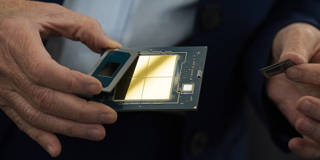As if America's foray into inefficient subsidization was not bad enough, US regulators have also announced excessive eligibility criteria for the same companies that they claim to want to help. From childcare requirements to new corporate taxes, the US policy mix is becoming increasingly muddled.
WASHINGTON, DC – Last year’s US CHIPS and Science Act created large subsidies for investments in domestic semiconductor fabrication facilities (fabs), on the grounds that microchips are essential both to the US economy and to national security. But while no one disputes the importance of chips (which are used in everything from cruise missiles to refrigerators), there are serious questions about whether subsidizing such investments is the best way to secure a reliable supply.

WASHINGTON, DC – Last year’s US CHIPS and Science Act created large subsidies for investments in domestic semiconductor fabrication facilities (fabs), on the grounds that microchips are essential both to the US economy and to national security. But while no one disputes the importance of chips (which are used in everything from cruise missiles to refrigerators), there are serious questions about whether subsidizing such investments is the best way to secure a reliable supply.